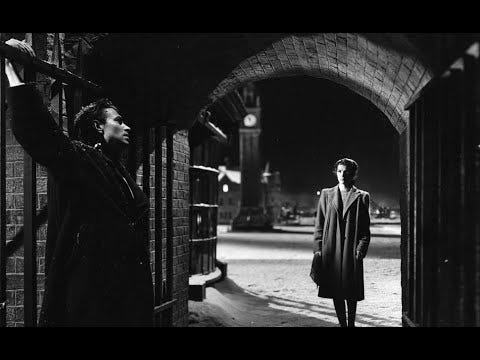Our back-to-school discount is still on at Word & Song, good for new paid and upgraded subscriptions as well as gifts (for the students, teachers, homeschoolers, and just about anyone who might enjoy our magazine).
Our Word of the Week is fall, and I think that it warrants some meditation on the rise and the fall of the human soul. “Pride goeth before destruction,” says Solomon, “and a haughty spirit before a fall.” The Greek tragedians also were wary of what’s known as hubris, which literally means uppity-ness, if you take it in a satirical sense, or pretending to be high and mighty, if you take it in a tragic sense, because the gods were ever ready to knock such men from their perches, sometimes with disastrous results. Yet there’s a deeper irony than watching a mighty fellow walk blindly to his own destruction, as Agamemnon does when he’s back in Argos after the Trojan War, and his wife is plotting to murder him. It’s when you see a man rise by his falling, as does Oedipus the illegitimate but intelligent and responsible king of Thebes, once he learns the dreadful truth about who he is and, what’s worse, who his father and mother are. This movement, which can touch upon the sublime, is what we find for example when Paul is struck blind on the road to Damascus, or when Peter, hearing the cock crow, sees what he has done, and weeps bitterly — weeps, but we know what he doesn’t, that his redemption is drawing near.
In our Film of the Week, Odd Man Out, we have a terrorist Irish patriot, Johnny McQueen (it is the breakout noir film for James Mason), who has been on the lam for six months after having escaped from prison. He is ordered to rob a mill. The question is whether he is up to the task, physically and emotionally. He insists that he is, but we are not so sure. He seems too thoughtful, too sensitive. The house where he’s been hiding is not his own. It belongs to a young Irish woman named Kathleen (Kathleen Ryan) and her grandmother. He is in love with Kathleen, and she returns his love, though she knows who and what he is. In the attempted getaway from the robbery, Johnny kills a guard and is himself shot in the shoulder, while his two “friends” drive off and abandon him. Thus Johnny is the odd man out of the three, in some fashion the best of them and the worst of them at once. In the rest of the film, he tries to evade the police, who are on to him and who have published his picture as a wanted man with a reward on his head; he has also to find some way to get the bullet out of his shoulder, which will kill him eventually if he does not; and he seeks some way to get together with Kathleen again, and perhaps to flee the country with her.
I don’t want to get into the details of Irish-British animosity, and the suppression of Catholics in the north, except to say that the Church plays a part in Odd Man Out, in the person of Father Tom, an Irish priest who does not approve of robbery, much less of any murderous violence, but who will also not be rolled by the police. He is in a difficult and morally ambiguous position. But then, so is everyone else. Kathleen loves Johnny, but should she harbor a killer? A cab driver notices that his fare is none other than the wanted man; he does not deliver him to the police for the reward, but he does not assist him, either. He dumps him on a curb. Two older ladies have taken Johnny in, seeing him clearly in distress and believing that he was hit by a car. He is dazed, only half-conscious. When they see that he’s bleeding from a gunshot wound, what are they to do about it? Even the two friends who abandoned Johnny did not do so without consciences that rip and tear: the more sympathetic of the two (Dan O’Herlihy) wants to go back and get him, but their getaway driver has eyes that stare straight ahead only. That ice-cold driver is played by Cyril Cusack, the narrow-minded enthusiastic chief of the firemen (not fire-fighters!) in Fahrenheit 451. Johnny’s friends could have forced the man, at considerable risk to themselves. They don’t.
Odd Man Out then is a film about falling, and also about what to do with someone who has fallen, and how, if it is possible, that fallen man can somehow look up again toward the light. Whether Johnny does or not, you must decide for yourselves — this is by no means a sentimental film, and the ending is not comfortable. It is directed by the great Sir Carol Reed, whom we’ve featured here at Word and Song, in his morality play The Fallen Idol. It’s easy to root for a good man. It’s even easy to root, for a while, for a bad man with flair, while waiting for the inevitable fall. What to feel for the Johnny McQueens of the world, not good but not thoroughly bad, acting in a very bad way for a possibly justifiable aim, well, that’s not an easy thing to determine. As in The Fallen Idol, in Odd Man Out Reed plunges us into humanity such as it is, often a sorry job, sometimes much worse than that, and sometimes what separates him from redemption or damnation is one beat of the heart.




